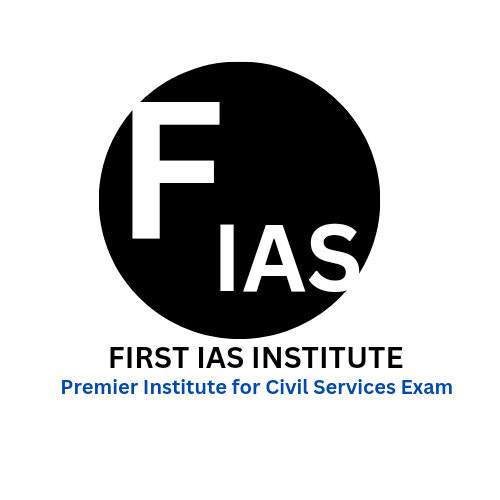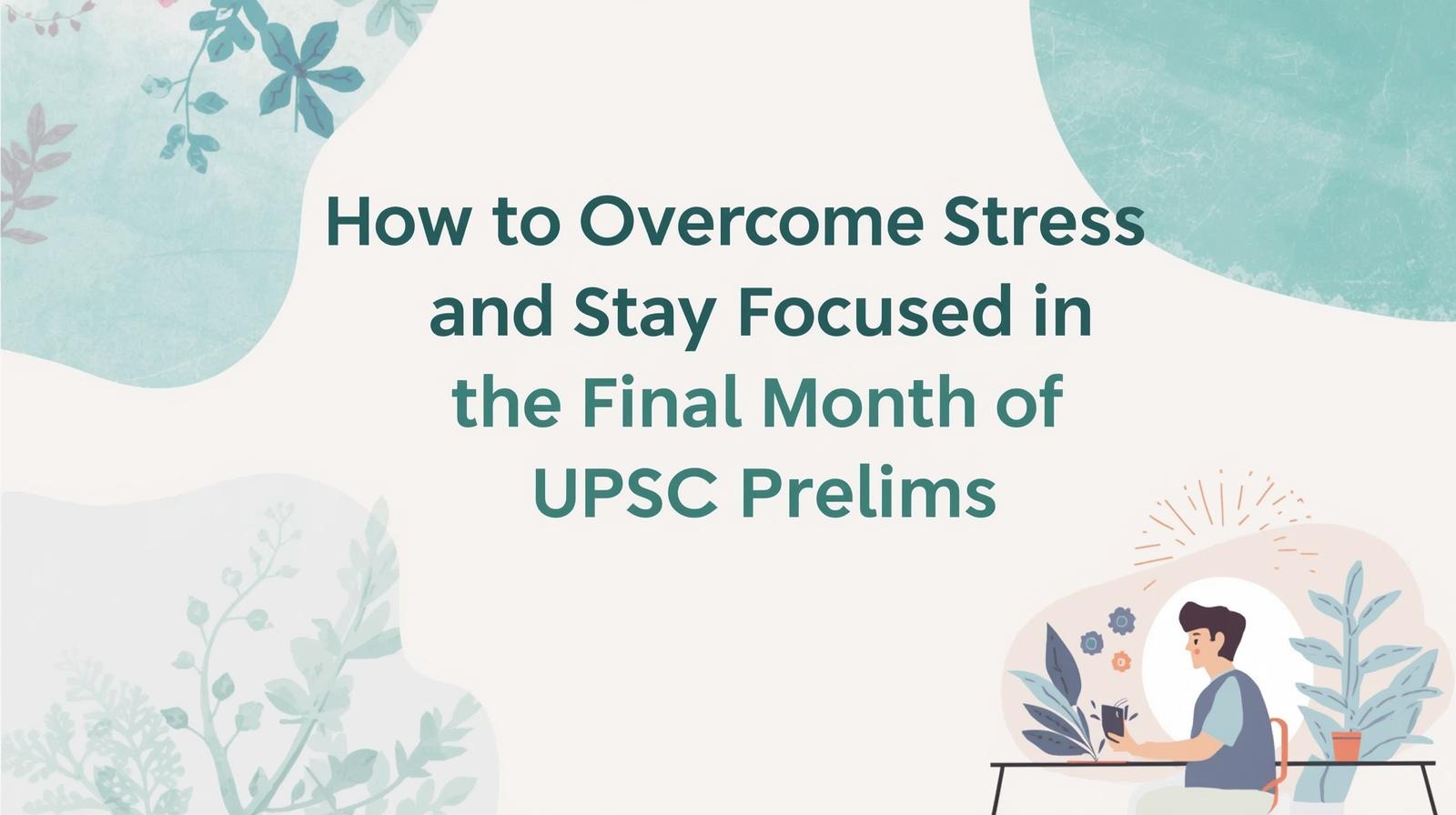Overcome Stress and Stay Focused for UPSC Prelims: Final Month Strategies
The final month before UPSC Prelims brings intense pressure for most aspirants. Feeling anxious or stressed during this stretch is both common and normal. Many experience self-doubts, racing thoughts, and worry about recalling vast amounts of information. Successfully managing stress while staying focused is as important as revision and practice for clearing the Prelims.
Recognise and Accept Last-Month Pressure
Awareness of stress is the first step. Over 70% of Indian students face exam-related anxiety. Accept that some tension and nervousness at this stage are expected. Instead of fighting these feelings, acknowledge them and use stress as a cue for productive action. Shifting your mindset from worrying about outcomes to engaging with the process makes a real difference.
Build a Structured Daily Routine
Create a daily schedule that balances study, revision, rest, and well-being. Focus on finishing revision cycles using short notes, mind maps, and targeted reading. Never open new books or take on fresh material at this time. Instead, reinforce what you've already studied and trust your preparation. Divide your day into 2–3 core revision sessions, interspersed with breaks.
Practice Mindfulness and Meditation
Dedicate 10 minutes daily to meditation, deep breathing, or yoga. Use apps like Headspace or Calm to guide short mindful practices. Simple rituals like walks, stretches, or deep breathing help lower anxiety and sharpen mental clarity. Mindfulness is proven to reduce negative thoughts and promote focused attention.
Prioritise Physical Health and Energy
A healthy body supports a focused mind. Maintain at least 6–7 hours of sleep each night; sleep deprivation directly lowers memory and slows thinking. Eat light and nutritious meals, avoiding heavy, processed foods that cause sluggishness. Include short bursts of exercise—jogging, yoga, or stretching—for 20–30 minutes daily. Good physical habits reinforce emotional stability and reduce fatigue.
Revise Strategically
Use the last month for reinforcing high-yield topics with rapid revision techniques. Leverage mock tests and previous year question papers to strengthen recall and exam temperament. Simulate real exam conditions by attempting full-length papers under strict timing, especially in the final ten days. Focus on rapid-fire questions, mind maps, and summarised notes for speedier recall. Practice the art of leaving out low-yield or untouched topics—trust your earlier coverage and concentrate on what matters most.
Manage Emotional Energy and Support System
Limit exposure to group anxiety and negative conversations. Avoid spending time with pessimistic peers or online communities that amplify stress. Instead, surround yourself with positive influences or supportive mentors. Write journal entries, practice positive affirmations, and visualize success. Imagine yourself entering the exam hall calm and prepared. Mental rehearsal is proven to reduce performance anxiety.
Self-Care and Stress-Busting Techniques
Break down studies with regular intervals; every 50–60 minutes of revision should be followed by a 5–10 minute rest. Take brief digital detoxes—avoid unnecessary news surfing, social media, or discussions about the exam except for direct revision. Pursue stress-busters such as music, short outdoor walks, or light hobbies if anxiety spikes.
Mock Tests and Active Revision
Continue practicing mock tests but focus on quality, not quantity. Review answer sheets thoroughly, learning from errors and strategising for improvement. Don't fret over scores; treat each test as a rehearsal for the real exam. Revise and consolidate quick notes post every mock, enhancing weak spots rather than rewriting entire topics.
Affirmations and Mental Resilience
Structure your day around the mantra: “I have prepared well. I will give my best. I am ready.” Embrace small wins—finishing a chapter, scoring well on a mock, or mastering a concept. Shift from fear of outcomes to pride in your process. Remember that UPSC is one stage in your larger journey, not its final verdict.
Tips for Exam Day and Last Week
- Organize your admit card, ID, and necessary items a week prior
- Stick to normal sleep/wake cycles; avoid late-night cramming
- Pack short revision notes for last-minute review
- Arrive at the center early with a calm mind; avoid comparing with peers
Conclusion
Managing stress and staying focused in the final month before UPSC Prelims requires a structured routine, mindful practices, good physical health, and strategic revision. Accept anxiety, channel energy into productive routines, and remember that personal growth is as important as exam results. With the right approach, you can perform at your peak and walk into the exam hall with confidence.


 firstiasofficial@gmail.com
firstiasofficial@gmail.com
Leave a Comment